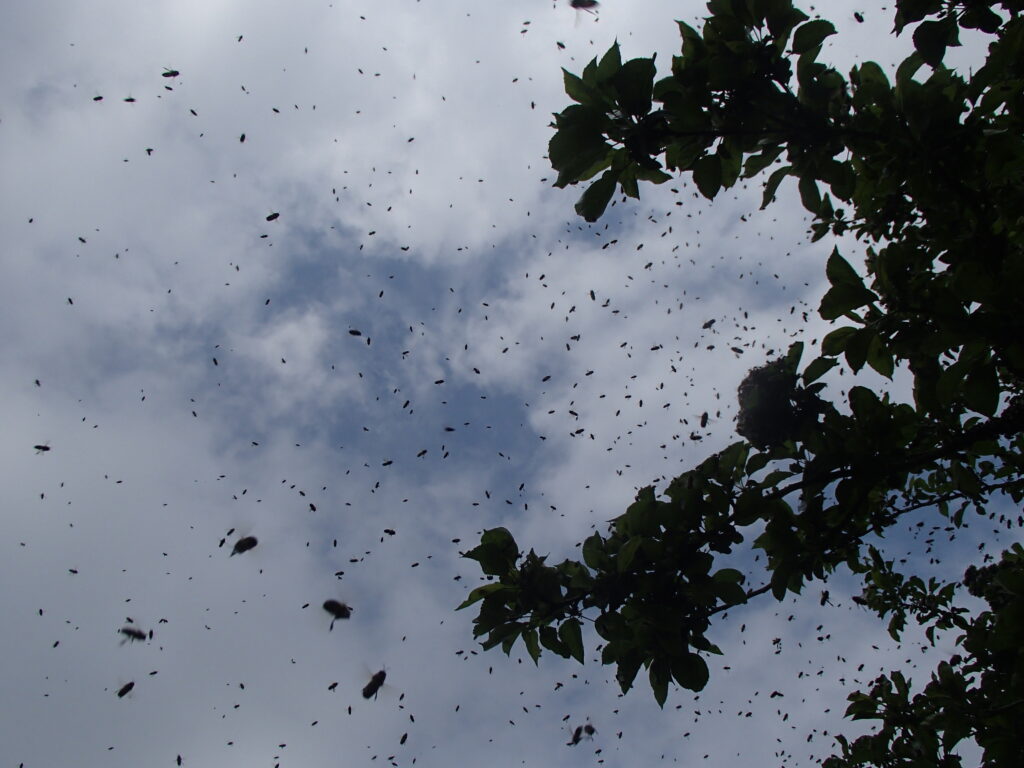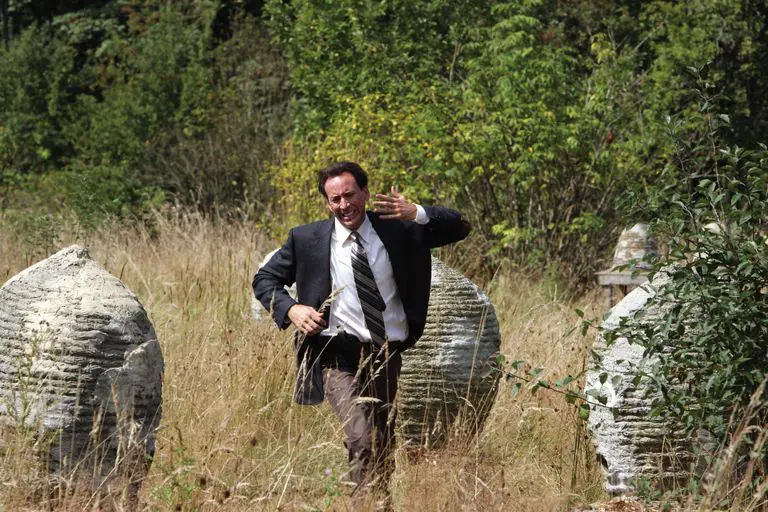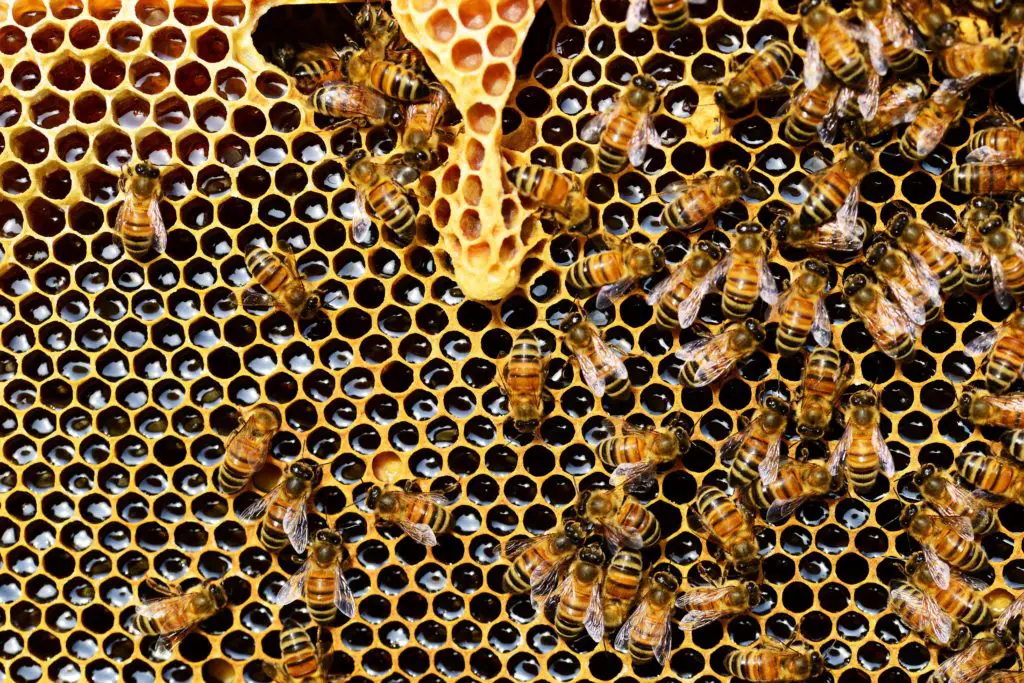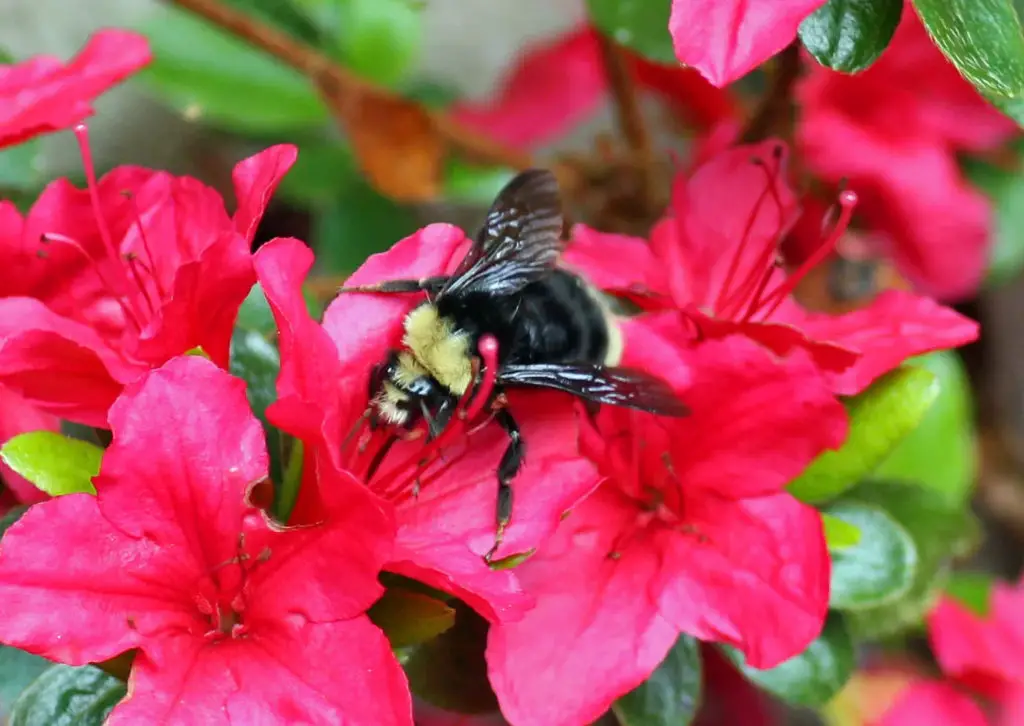Affiliate Disclaimer - As an Amazon Associate I earn from qualifying purchases.
It supports the website. So, Thank you
When I think about a bee chase, my mind instantly brings up images of poor little Winnie The Pooh fumbling along after being caught by the bees trying to steal honey…again. But while this might just be a cartoon, there is a degree of truth in it and bees can get agitated to the point that they’ll swarm and chase their target. But how far will bees chase you?
Bees won’t chase you too far and usually, they’ll give up after around 50 feet. But there are many variables to this and some bees have been known to chase people for up to a quarter of a mile!
Bees chase you because they feel threatened by you and are trying to warn you off. Remember that honey bees will die once they sting so they’ll only use this as a last resort. Still, being chased by bees isn’t nice so in order to avoid it, I’ve written this guide to tell you everything to expect and how to stay safe during a bee attack.
Table of Contents
How Far Do Bees Chase You?
If you disturb a honey bee hive then the bees will be likely to continue pursuing you for at least ten feet. Should you keep moving away from the hive, many of the bees will give up and head back as they will perceive the threat as being gone. However, there may be some bees that will carry on chasing you for as far as 50 feet.
These are the bees that have committed to you and are much more dedicated. But even if they do sting you, they don’t die straight away so they may continue chasing you until they physically cannot fly anymore. While this is usually only a matter of minutes, some bees will survive for several hours without their stinger.
What Do I Do If Bees Are Chasing Me?
Being chased by bees is a very scary thing. It happened to someone I know and ever since then, they have been terrified even if a single bee innocently flies past them. But while being chased by a swarm of angry bees can make you feel hopeless, there are things you can do to minimize your suffering.

Hold Your Breath Before The Bees Attack
Bees can sense you using their sense of smell and even something as small as the smell of your breath can attract them. If the bees are getting worked up but there’s no sign of an attack yet then hold your breath and start making your getaway. Without being able to sense you through smell, you should have enough time to flee without the worst happening.
Don’t Swat The Bees
Your natural instinct when being chased by angry bees will be to swat them away, brush them off yourself, or even flail your arms. But to a bee, this isn’t sending the message that you intend to send. Instead, it tells the bees that you are a threat and they will continue to attack.
Bees work together and one of their main goals is to keep the queen safe. If they sense a threat then they will instantly go into attack mode. What’s more, since bees produce an alarm pheromone, once one feels threatened, it won’t be long before the whole colony is up in arms.
Keep your movements to a minimum and don’t be tempted to kill bees as they come at you. When the bee is dying, that alarm pheromone becomes more potent so you’ll only end up with more bees coming to its aid.
Get Indoors
Where it is possible, getting indoors and locking the bee(s) out is the best way to get away from them. If you’re in your backyard when the attack happens then head for the door and shut it quickly behind you.
Don’t Run
Bees will see any sudden movement as a threat and this will heighten their aggression. One of the worst things you can do is to suddenly start sprinting in the hope of getting away from the bee.
Of course, you are going to want to get away but you should do this with calm, smooth movements and don’t do anything suddenly.
How To Avoid A Bee Attack
Prevention is better than cure so it’s always a good idea to avoid agitating bees as much as possible. It’s only natural that, as we live alongside the bees, there are going to be times that we accidentally upset them but it’s worth being mindful to avoid an attack.
One thing you should absolutely remember is that bees will give you a clear warning before they start chasing you. Although the problem is that not too many people are aware of this warning and so miss it and end up getting chased.
When a bee initially becomes angered by you, it will come at you and bump into you, often known as a head butt. The bee is telling you that you’re getting too close and they want you to leave. But don’t do this suddenly because, as we have learned, they don’t react kindly to sudden movements. Just carefully and slowly back away and leave the bee in peace.
If you don’t leave the bee alone then it will start sending out alarm pheromones to its hive mates who will soon arrive on the scene to go into battle with you. And let me tell you, they will win!
Most of us won’t want to get into this situation in the first place so here are some helpful tips that will help you avoid bees this summer.
- Avoid wearing dark-colored clothing and stick to something light. Bees, particularly honey bees, are adapted to recognize colors that may be seen as a threat. Since predators like honey badgers and bears have dark fur, bees may mistake your dark clothing for a threat.
- If you find a bee’s nest, leave it well alone. Messing with it will only serve to agitate the bees who will then go into defence mode. Just think about it; what would your reaction be if someone came poking around in your home?
- In the event that you disturb a nest accidentally then try to find shelter as quickly as possible. Many people will tell you to run and while I would urge you to get away as fast as you can, remember to keep those sudden movements to a minimum.
- While it can be tempting to get into a body of water to escape the swarm, this isn’t a good idea. The bees will simply wait for you to come back out. There’s a story about a man who did this and spent hours in a lake being repeatedly stung by the bees every time he surfaced to take a breath. If it wasn’t for the fact that the bees left when the sun went down, he might not have survived.
Conclusion
One thing that people worry about when it comes to bees is being stung, or worse, chased. But while bees are not naturally aggressive, they can become so when they feel threatened.
If you accidentally upset a bee then its colony will soon come to the rescue and they’ll all go into attack mode – the target? You! But how far will bees chase you before they get bored and return to the hive?
Normally, most bees will only chase you up to 50 feet from the hive but there have been some species known to go much further than this; up to a quarter of a mile.
If you are being chased by bees, try not to panic, don’t swat the bees, and look for shelter as quickly as possible. They’re trying to chase you away from their hive so comply with them and things won’t be as bad.




